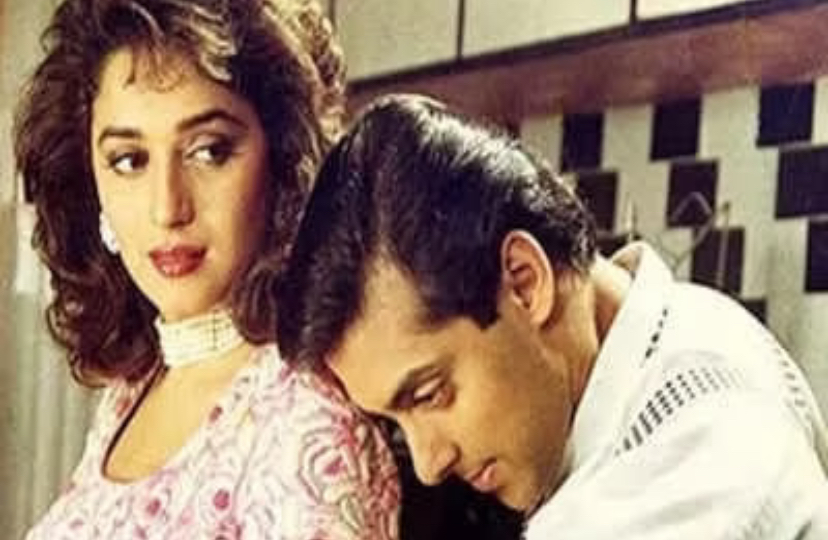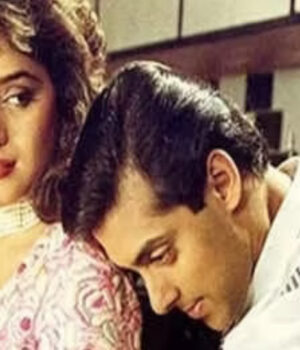
In the realm of Bollywood classics, “Hum Saath Saath Hain” stands as a testament to familial bonds and harmonious relationships within a quintessential joint Indian family. However, hidden beneath the veneer of this star-studded film lies a surprising revelation – it was originally conceived as a reunion for Salman Khan and Madhuri Dixit after their iconic pairing in “Hum Aapke Hain Koun.” What’s more intriguing is the fact that Madhuri turned down this opportunity, citing a surprising reason – her co-star, Salman Khan.
In a candid interview with Rediff, Madhuri shared the unique circumstances that led to her decision to decline a role in the 1999 film. Having already established a strong working relationship with the film’s director, Sooraj Barjatya, she couldn’t outright refuse the offer. She was presented with the chance to portray Tabu’s character, Sadhna, but Madhuri felt that she could also excel in the roles played by Karisma Kapoor or Sonali Bendre. However, Sooraj Barjatya had a different vision and believed these roles were not quite suitable for her.
Madhuri’s reservation was grounded in the challenge of portraying a ‘bhabhi-devar’ (sister-in-law and brother-in-law) relationship with Salman Khan after having portrayed his love interest in “Hum Aapke Hain Koun.” She worried that such a shift in dynamics might not be well-received by the audience. She pointed to a particular scene in the film where Salman Khan’s character touches Tabu’s feet and embraces her, a moment crucial to establishing the ‘bhabhi-devar’ sentiment. Madhuri candidly remarked that if she were in Tabu’s place, and audiences saw Salman Khan touching her feet, the response might have been less than favorable, considering their previous romantic on-screen chemistry in “Hum Aapke Hain Koun.”
Nonetheless, “Hum Saath Saath Hain” ultimately made its mark on Indian cinema as a family-centric narrative, celebrated for its wholesome storytelling. The film’s timeless soundtrack, composed by Raamlaxman, added to its enduring charm. Songs like “Maiyya Yashoda,” “Yeh To Sach Hai Ki Bhagwan Hai,” and “A B C D” continue to resonate with audiences even years after the film’s release, serving as a lasting testament to the magic of Bollywood’s storytelling.










